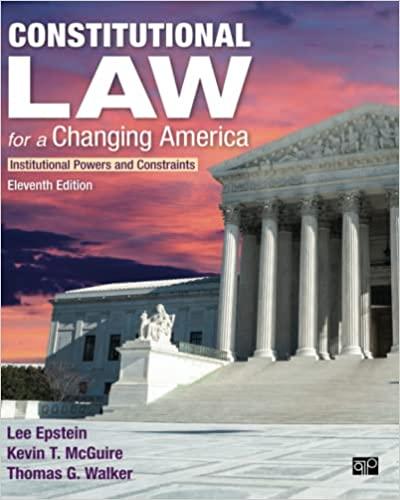Question
DiscussEACHof the three personality inventories by itself. ForEACHtest, comment on:The number of itemsThe content of each itemWhat is the stimulus or stem for each item?
DiscussEACHof the three personality inventories by itself. ForEACHtest, comment on:The number of itemsThe content of each itemWhat is the stimulus or stem for each item? (e.g., a pair of words, a sentence describing behavior, etc.)How clear is the content of each item? For example, does it use words you don't know or ask something that doesn't make sense (e.g., how "abstract" are you)?How do you provide your response to the items? (e.g., rating on a scale with 5 points, from strongly disagree to strongly agree)The number of factors or traits described in your score (if applicable)In your opinion, does the scale clearly seem to be measuring personality (face validity)?How accurate do you think the results are (i.e., how well does your score and its interpretation describe you and your behavior patterns)?How much of the entire domain of personality does the scale cover?How broad or narrow is/are the factors(s) of the scale? Does each factor cover a wide or small range of behavior? (e.g., conscientiousness covers many aspects of behavior such as self-discipline, neatness, competence, need for achievement, etc.)Would it be easy to "fake good" (pretend to be an ideal employee) on the scale if you were filling it out as part of a hiring process?Do you think the measure (or any part of it) would be useful in predicting any work criteria (e.g., job performance, counterproductive work behavior, turnover)?Compare the three tests you took with each other. Consider:How did the items differ between the measures?How did the scoring differ? (e.g., did you get values on a continuum or a personality "type" at the end?)How did the scope of the tests differ? (e.g., did they seem to describe the same amount of differences in personality or did one seem to cover a broader or narrower range of behavior?Do they seem to have about the same levels of accuracy (in terms of agreeing with your own conception of yourself)?Which did you find most useful or informative? (i.e., which taught you the most about yourself)Which did you find to be the most fun or interesting?

Step by Step Solution
There are 3 Steps involved in it
Step: 1

Get Instant Access to Expert-Tailored Solutions
See step-by-step solutions with expert insights and AI powered tools for academic success
Step: 2

Step: 3

Ace Your Homework with AI
Get the answers you need in no time with our AI-driven, step-by-step assistance
Get Started


